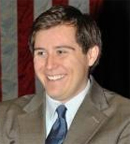Dissent in Wars. Russell F. Weigley, and. David S. Patterson "These men are not being supported as we were supported in World War I."So the Vietnam War appeared in contrast to the crusade of 1917 - 1918 to a speaker addressing a reunion of the First Infantry Division in 1969 and reported by the military journalist Ward Just. American military men who fought in Vietnam widely believed thatCracking down on dissent during World War I was part of uniting Americans around the war effort.Cracking down on dissent during World War I was part of the larger governmental goal in the United States of promoting war production domestically, since the US needed to supply a great number of weapons to Europe, as well as troops. taliajohnsom9901 Cracking down on dissent during world war 1 was part of uniting Americans around the war effort.Cracking down on dissent during World War I was part of the larger governmental goal in the US of mobilizing the domestic economy to support the war effort.In this excerpt from Dissent: The History of an American Idea, Ralph Young looks at how the limits of dissent as one of our nation's defining characteristics were tested during World War I.. Eugene Debs . In October 1917, [Senator Robert La Follette] delivered a blistering address in defense of free speech and dissent.
Cracking down on dissent during World War I was part of
The Americans who opposed World War I built the largest, most diverse, and most sophisticated peace coalition up to that point in U.S. history. They came from a variety of backgrounds: wealthy and middle and working class, urban and rural, white and black, Christian and Jewish and atheist.War has always held a bizarre romance for some, and patriotism always spikes when a nation marches off to battle. While there's no shortage of stories of brave teenagers faking their age in order to get in the action, the story of Sidney G. Lewis is incredible because he wasn't some nearly adult teenager fudging his age a little — he was just 12 years old when he enlisted, shipped out, andRegulatory Takings. Although it is established that govern-ment may take private property, with compensation, to promote the public interest, that interest also may be served by regulation of property use pursuant to the police power, and for years there was broad dicta that no one may claim damages that result from a police regulation designed to secure the common welfare, especially in theCracking down on dissent during World War I was part of what larger governmental goal in the US? seizing absolute power for the government preventing demonstrations against the war uniting Americans around the war effort demonstrating American might to the world

Cracking down on dissent during world war i was part of
The United States never joined the League of Nations, despite Wilson's key role in its creation. Treaty of Versailles: One of the peace treaties that brought an end to World War I. Signed on June 28, 1919, it ended hostilities between Germany and the Allied powers exactly five years after the assassination of Archduke Franz Ferdinand.While American antiwar dissent was broader and sharper during World War I, dissent also existed during World War II. Even though antiwar dissent did not alter the conduct or duration of the conflicts, both world wars had a major impact on the American peace movement—and through the peace movement, on American society.Cracking down on dissent during World War I was part of what larger governmental goal in the US? Question. Not Answered. Updated 19 days ago|3/11/2021 11:38:03 PM. 1 Answer/Comment. Here_To_Help_You. Cracking down on dissent during World War I was part of uniting Americans around the war effort. Added 19 days ago|3/11/2021 11:38:03 PMThe Case for U.S. Entry into World War I On January 22, 1917, President Woodrow Wilson told a joint session of Congress that the United States must remain neutral in World War I to ensure "peaceArticle: The Pentagon's plans to crack down on dissent and consolidate power - Assessing how the military/intelligence complex plans to repress the public during the future of the current cold war.
Part 1 | Part 2
THE YEARS SURROUNDING Americas involvement in World War I have been a watershed for how the United States treated foreigners within its borders during wartime. Immigrants had flooded the United States in the overdue nineteenth and early 20th centuries. When the United States declared war on Germany on April 6, 1917, almost a third of Americans were either first or second-generation immigrants. Those born in Germany and even American-born electorate of German descent fell underneath suspicion of being disloyal.
Later, in part in reaction towards the Bolshevik Revolution and the rising tide of socialism in Europe, a extra general anti-immigrant sentiment gripped America. For instance, via the Palmer Raids of the Nineteen Twenties, the Department of Justice rounded up thousands of foreigners who have been alleged communists, anarchists, hard work reformers, or differently menaces to society. Many were forcibly deported.
World War I was Americas first extensive global battle, but legal precedent existed for the mistreatment of resident foreigners.
In 1798, the danger of war with France loomed: immigrants from France and Ireland a nation aligned with the anti-British French were seen with political suspicion. Accordingly, Congress handed 4 laws jointly referred to as the Alien and Sedition Acts. The Naturalization Act required extraterrestrial beings to be residents for 14 years prior to becoming eligible for citizenship. The Alien Act authorized the deportation of dangerous aliens. The Alien Enemies Act allowed the arrest, imprisonment, and deportation of any alien who was the subject of an enemy power.
The Sedition Act supplied fines and jail penalties for anyone who
shall write, print, utter or post … false, scandalous and malicious writing or writings in opposition to the government of the United States, or either area of the Congress … or the President … with intent to defame … or to deliver them … into contempt or disrepute; or to excite towards them … the hatred of the just right folks of the United States….
The acts were driven forward by way of the federalists those that liked a strong federal govt and a free interpretation of the Constitution: the federalists dominated Congress. One of their motives was to silence opposition from their political opponents, republicans, whom immigrants tended to toughen. The outstanding republicans Thomas Jefferson and James Madison believed that the powers claimed by way of President John Adams beneath the Acts resembled those of a monarch. They denounced the Sedition Act in particular as unconstitutional, as a violation of the First Amendment. Both the Kentucky and Virginia legislatures passed Resolves that rejected the Acts and set forth the doctrine of nullification.
Although no person was prosecuted beneath the first three measures, a series of influential republicans together with outstanding editors and printers have been quickly charged underneath the Sedition Act, forcing some newspapers to near. One of the men prosecuted was Benjamin Franklins grandson and the editor of the Philadelphia Aurora. The fee: libeling President Adams. His arrest sparked a public outcry towards the Acts, which helped give the presidency to Jefferson in 1800. Once in office, Jefferson pardoned the ones convicted underneath the Sedition Act and Congress repaid the fines gathered, with interest.
Thus, from Americas earliest years, the issues of alien residents and unfastened speech had been linked during disaster. Although the early republicans weren't necessarily more sanguine about resident extraterrestrial beings than federalists, they had been intensely suspicious of increasing the federal governments authority. They believed that the power to suppress constitutional freedoms would be used inevitably to quash political opposition.
The alien enemy withinOn April 16, 1917, all males older than 14 who have been nonetheless natives, electorate, denizens, or topics of the German Empire changed into alien enemies. In 1918, an act of Congress included women aged 14 and older. In time, alternatively, the time period alien enemy came to use to nearly any foreign resident the executive deemed unwanted. It turned into an effective weapon the executive wielded against people and organizations which have been pacifist, important of the war, or another way objectionable politically.
Alien enemies had been a top precedence on the wartime agenda. On the similar day that Congress declared war, President Wilson issued 12 regulations for his or her remedy. Alien enemies had been prohibited from proudly owning such items as firearms, aircraft, or wi-fi apparatus. They may now not put up an attack upon any department of the U.S. govt. They could now not reside in an area designated as prohibited by means of the president. They might be removed to a location designated through the president. Alien enemies may not leave the United States with out permission and so they have been required to sign in with the govt to obtain a registration card.
On November 16, 1917, 8 more laws have been added to the unique 12. They restricted how carefully and underneath what circumstances enemy extraterrestrial beings may just method facilities equivalent to docks, railroads, and warehouses thus, de facto restricting their employment. Aliens have been banned from air shuttle and from the District of Columbia. The restriction embodied in Section 20 equipped the basis for the later internment of extraterrestrial beings; it learn, in part:
The Attorney General is hereby licensed to make and declare, once in a while, such laws regarding the actions of alien enemies as he might deem vital in the premises and for the public protection, and to provide in such rules for per month, weekly, or different periodical report by means of alien enemies to federal, state or native authorities; and all alien enemies shall record at the instances and puts and to the authorities specified in such rules. [Full textual content of the 20 rules is online.]
One motivation in the back of the rules was obviously to establish control over radical groups who disagreed with govt policies, including insurance policies on the war.
World War I ushered in a vast program of conformity and centralization into American society. For instance, within commerce, the Railway Administration Act gave de facto regulate of the railroads the main supply of transportation to the federal government. The War Labor Board, the War Industries Board, and a slate of other executive companies centralized commerce in the identify of supporting the war effort. Fuel rationing, the draft, value controls those and many other measures thrust the federal govt deeply into the financial lives of the reasonable American.
The assault on civil libertiesThe federal govt additionally intruded upon civil liberties, especially the proper to dissent. The radical hard work movement turned into a focal point of executive for several reasons. It was a success: in the first decades of the twentieth century, exertions unrest had unfold like wildfire throughout large sections of America and sparked effective moves. It was anti-war: its distinguished communist and socialist leaders believed the war was being fought for capitalism and they felt comradeship, not hostility, toward foreign workers. Socialism, in basic, had grow to be a political risk: in each and every presidential election from 1900 to 1912, the exertions chief Eugene Debs had run on the American Socialist Party price tag, receiving with reference to one million votes in 1912.
The radical exertions motion was additionally a very easy target as a result of of its immigrant-heavy club. Politically minded immigrants had a historical past of bringing radical ideas with them. For example, in the remaining a long time of the 1800s, the International Working Peoples Association (IWPA) issued no fewer than 5 papers out of Chicago by myself, three of which have been in German.
Moreover, by World War I, there was a sour history of clashes between radical labor movements and the authorities. The Haymarket incident in Chicago is a notorious example. In the spring of 1886, 65,000 staff in the city either went on strike or had been locked out by way of their employers. On May 3, the police fired upon a crowd of laborers, killing several. The subsequent day, a protest meeting ended in a violent conflict that left seven policemen and an unknown number of workers (estimated at about 20) useless.
Eight radicals each immigrant and American-born were prosecuted. Or, more as it should be, their ideology was put on trial. The prosecuting attorney admonished the jury, Law is on trial. Anarchy is on trial. These men [the defendants] had been selected … because they are leaders …. Convict these males … save our institutions, our society. Although they have been demonstrably innocent, 4 of the defendants had been achieved, with one escaping his destiny through suicide.
By World War I, it was difficult to cleanly separate the issues of radical exertions, socialism, opposition to war, and alien enemies from every other. The federal govt viewed all as menaces.
A number one target was the Industrial Workers of the World (IWW) or Wobblies, which grew so temporarily that it became a family name during much of America in the early twentieth century. Today, few people have heard of the IWW. Its importance in U.S. social history has been virtually forgotten. Its mercurial upward push to prominence was matched in drama only via its disastrous collapse in consequence of government repression. Its history is a cautionary story.
Part 1 | Part 2
eileen andrews

ryan kuresman

Giant Image Management - Diary of Silviamatrilineally ...

andrew bowins

jay curley

ed wyatt

paul tencher

Giant Image Management - Diary of Silviamatrilineally ...
.jpg)
ed gillespie

mc

bacon

trey radel

alex conway

todd-= tiahrt

usglc

ljaf

poon

stephen virostek

johanna maska

Giant Image Management - Diary of Silviamatrilineally ...

gross

0 comments:
Post a Comment